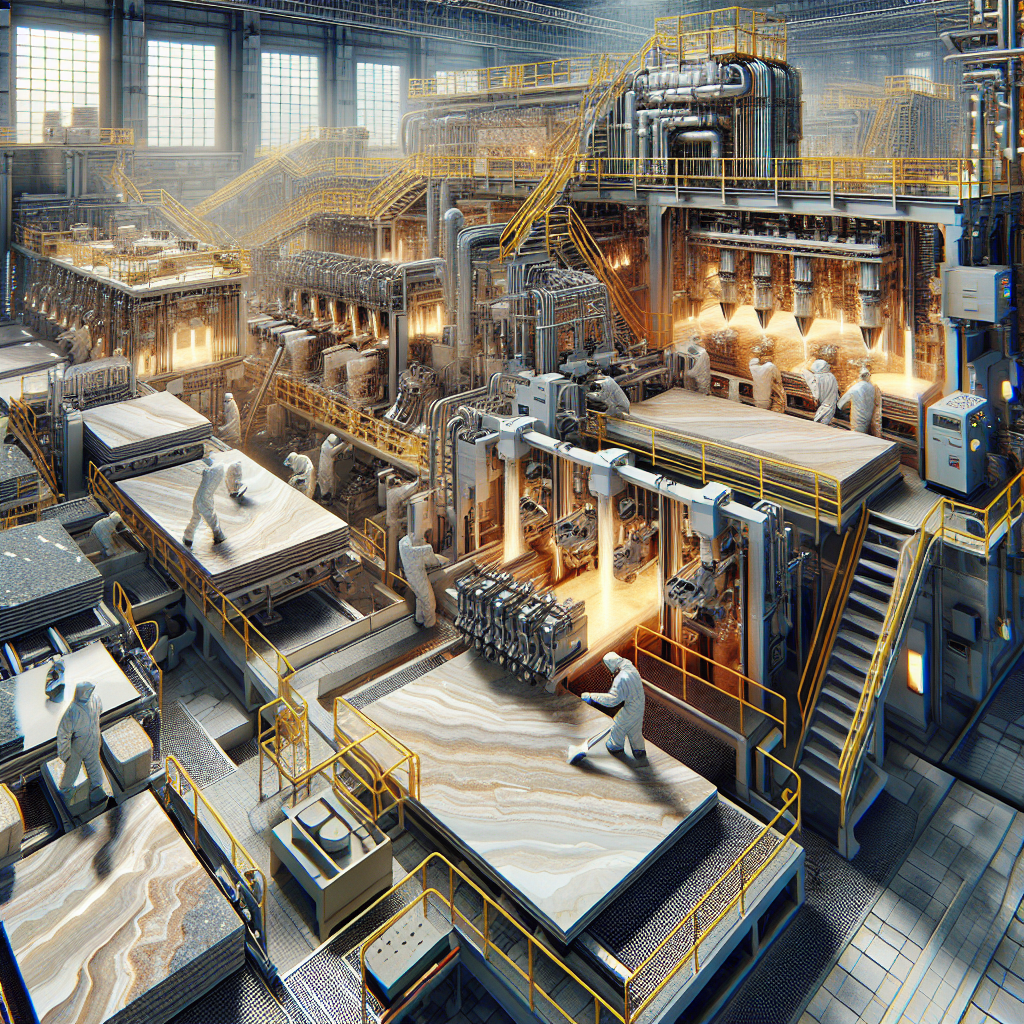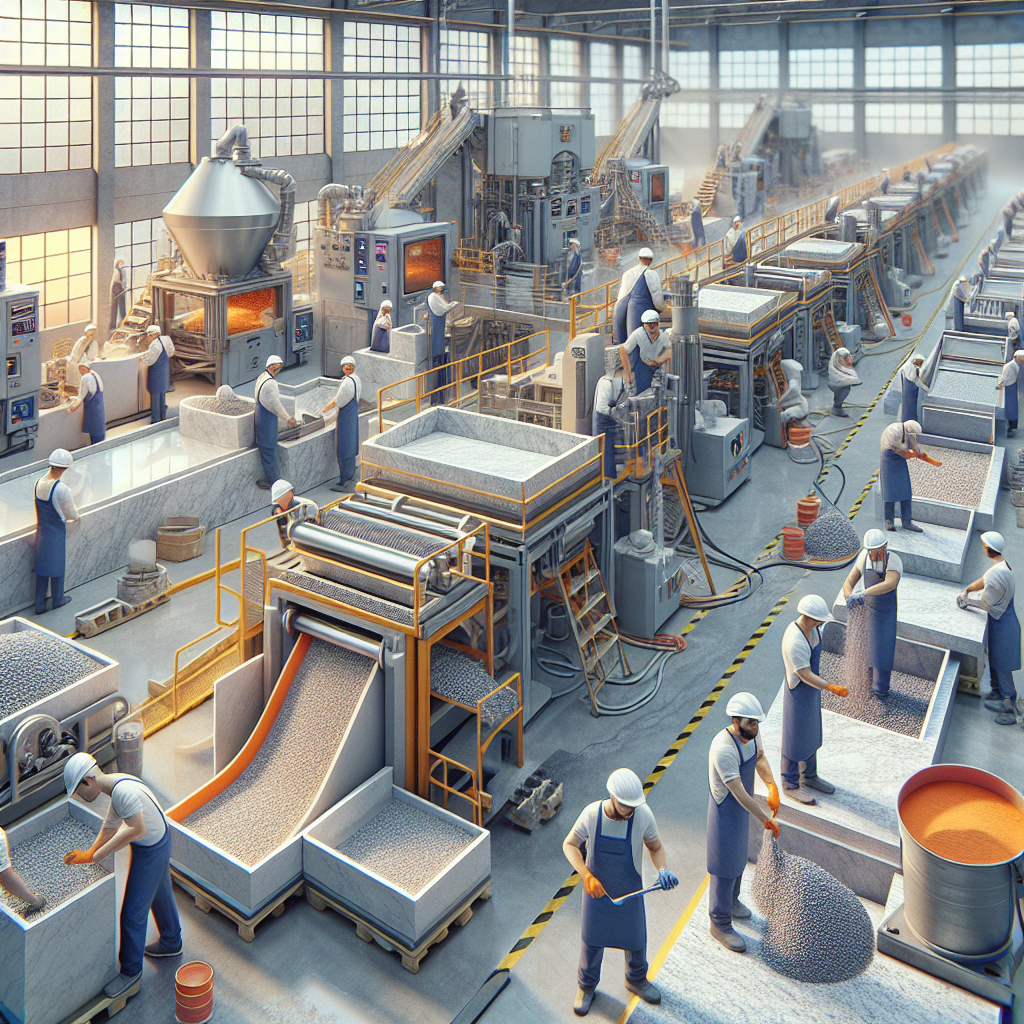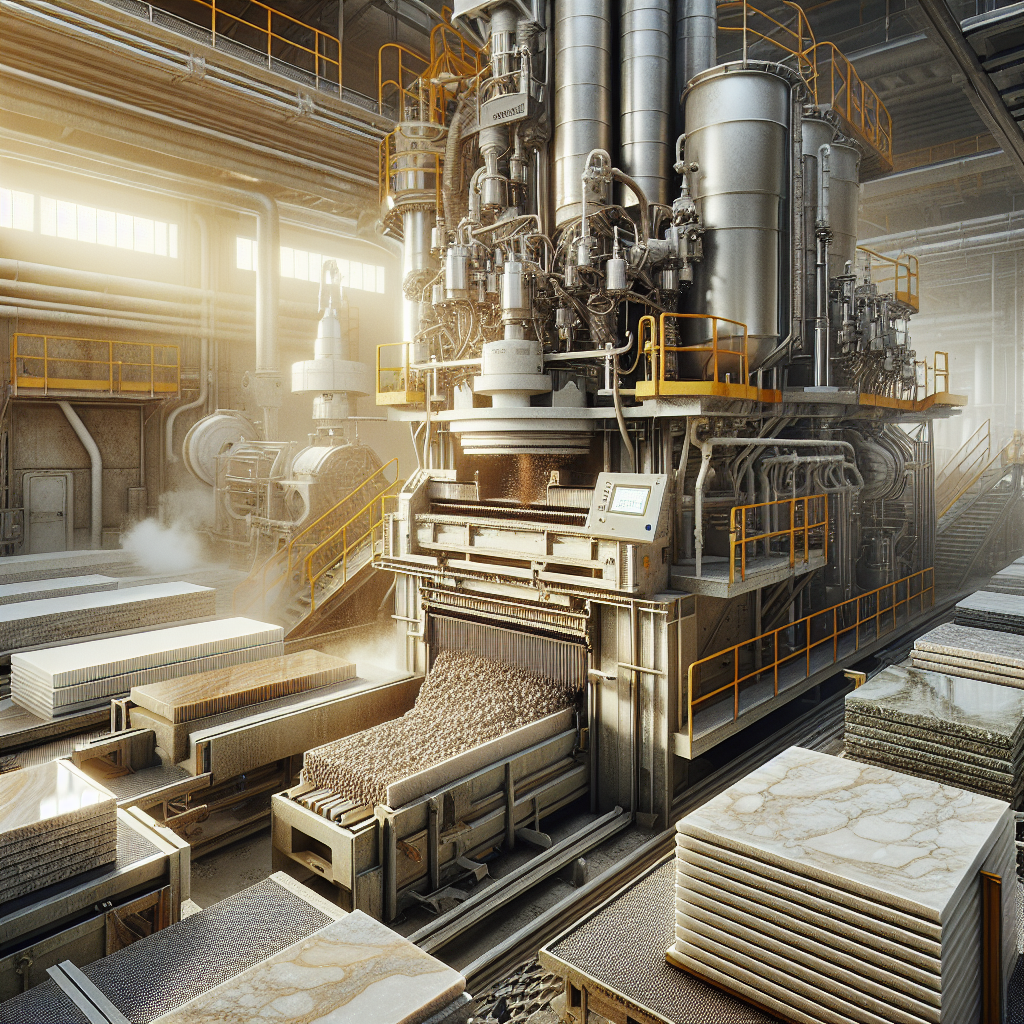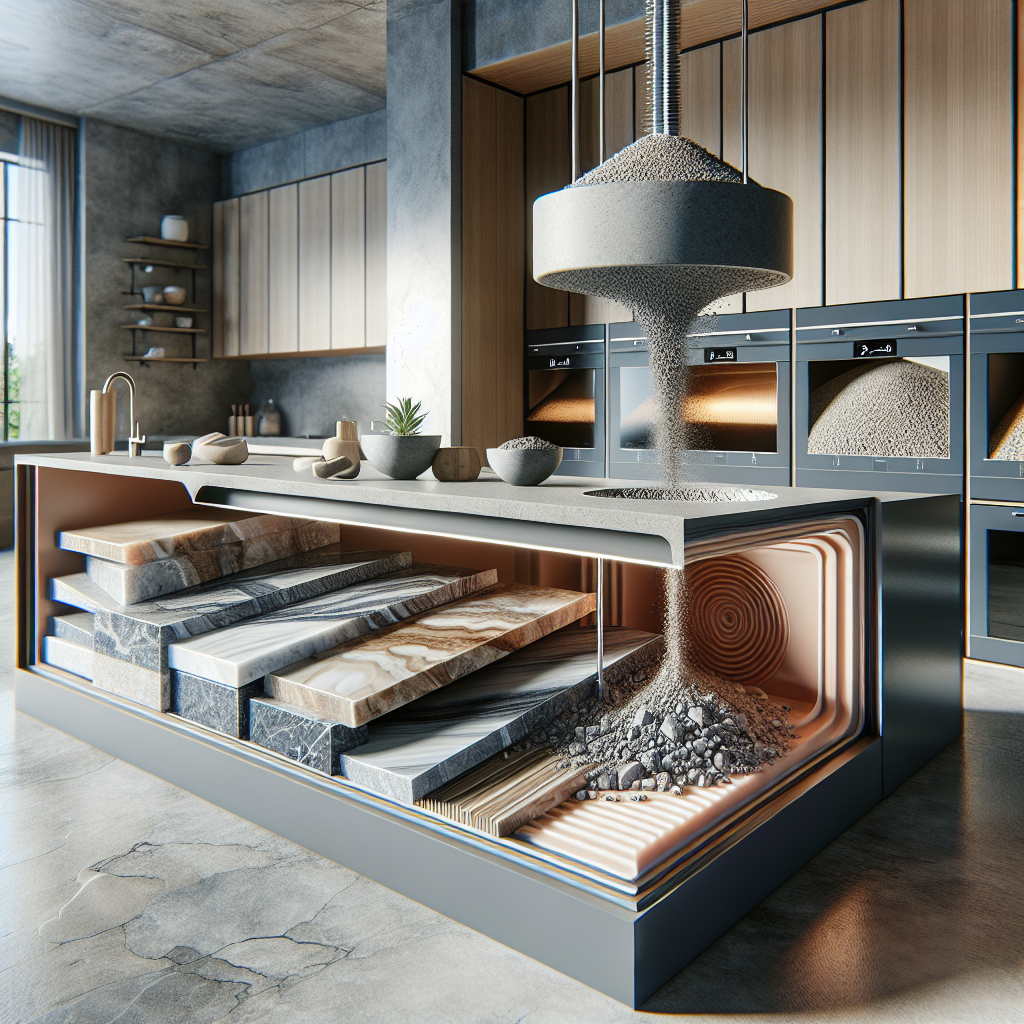Quartz countertops have swiftly become a popular choice for homeowners and kitchen designers alike, thanks to their exceptional durability and aesthetic appeal. Unlike natural stone options, quartz is engineered to provide consistency, strength, and versatility. This makes it an ideal material for those looking to invest in a long-lasting surface for their kitchen.
The durability of quartz countertops stems from their unique composition. They are made from approximately 90-95% ground quartz minerals combined with polymer resins and pigments. This results in a non-porous surface that is highly resistant to scratches, stains, and even heat—factors that are crucial in a high-traffic area like a kitchen.
Furthermore, quartz countertops are designed to withstand daily wear and tear, making them a practical and attractive choice for families, cooking enthusiasts, and anyone who spends a lot of time in the kitchen. Their non-porous nature also means they are more hygienic, as they do not harbor bacteria or mold, ensuring a cleaner and healthier environment.
With its blend of beauty and brawn, it’s no wonder that quartz is considered one of the best materials for kitchen countertops. If you’re considering a kitchen remodel or simply want to upgrade your countertops, quartz should be at the top of your list.
Call us today at (954) 781-7370 for a free quote!
Composition and Manufacturing Process of Quartz

The remarkable durability of quartz countertops can be attributed to their unique composition and meticulous manufacturing process. Unlike natural stone countertops, quartz countertops are engineered using a combination of natural quartz crystals and synthetic materials. This engineered stone product typically consists of about 90-95% ground quartz, which is one of the hardest minerals on Earth, combined with polymer resins and pigments to create a robust, non-porous surface.
The manufacturing process begins by blending the ground quartz with the resins and pigments. This mixture is then poured into molds to form slabs. These slabs are subjected to a process called vibrocompression, where they are compacted under intense vibration and pressure to eliminate air pockets and ensure uniformity. The slabs are then cured in a kiln at high temperatures to harden the resin, further enhancing the material’s strength.
Once cured, the slabs undergo a rigorous polishing process to achieve a smooth, glossy finish. Depending on the desired aesthetic, they may also be textured or honed for a matte appearance. The final product is a highly durable, non-porous surface that is resistant to scratches, stains, and heat, making it ideal for kitchen countertops.
Thanks to this advanced manufacturing process, quartz countertops not only offer superior durability but also come in a wide variety of colors and patterns, mimicking the look of natural stone while providing enhanced performance characteristics.
Scratch and Stain Resistance of Quartz

One of the standout features of quartz countertops is their exceptional scratch and stain resistance. This makes them an ideal choice for bustling kitchens where durability is paramount. Thanks to the high concentration of natural quartz, which ranks 7 on the Mohs hardness scale, these countertops are incredibly hard and resilient.
Quartz countertops are designed to withstand daily wear and tear. The non-porous surface ensures that liquids and spills do not seep into the material, preventing stains from setting in. This is a significant advantage over natural stones like granite or marble, which can be more susceptible to staining if not properly sealed. Common kitchen culprits such as coffee, wine, and oil are no match for quartz, allowing homeowners to maintain a pristine kitchen surface with minimal effort.
In terms of scratch resistance, quartz countertops are highly resilient. While it is always advisable to use cutting boards and avoid direct contact with sharp objects to prolong the countertop’s life, quartz can handle minor abrasions without showing noticeable damage. This resilience makes it a practical choice for families and avid home cooks who need a reliable and durable kitchen surface.
The combination of scratch and stain resistance, along with other desirable properties, makes quartz a long-lasting and low-maintenance option for kitchen countertops. It’s no wonder that many homeowners and interior designers favor this material for both its aesthetic appeal and functional advantages.
Heat Resistance and Maintenance Tips

Quartz countertops are renowned for their impressive heat resistance, making them a practical choice for any kitchen. While quartz is not entirely impervious to heat, it can generally withstand temperatures up to 150 degrees Fahrenheit without any damage. This resilience means that you can place hot pots and pans on the surface for short periods without worrying about immediate damage. However, to ensure the longevity of your quartz countertops, it is wise to use trivets or hot pads to minimize direct heat exposure.
When it comes to maintenance, quartz countertops are remarkably low-maintenance compared to other materials. The non-porous nature of quartz means that it does not require sealing, unlike granite or marble. This characteristic not only makes quartz more resistant to bacteria and mold but also simplifies the cleaning process. A simple wipe-down with mild soap and water is typically all that’s needed to keep the surface looking pristine.
For tougher stains, a gentle scrub with a non-abrasive cleaner should do the trick. It’s important to avoid using harsh chemicals or abrasive pads, as these can damage the surface. Additionally, while quartz is scratch-resistant, it is advisable to use cutting boards and avoid direct knife contact to keep the surface in the best possible condition.
By adhering to these straightforward maintenance tips, you can ensure that your quartz countertops remain beautiful and functional for years to come. This combination of heat resistance and easy upkeep makes quartz a highly desirable option for busy kitchens.
Comparing Quartz with Other Countertop Materials

When choosing a countertop material, it’s essential to compare the benefits and drawbacks of various options. Quartz countertops stand out due to their combination of durability, low maintenance, and aesthetic appeal. But how do they stack up against other popular materials like granite, marble, and laminate?
Granite: Granite is a natural stone known for its unique patterns and colors. While it scores high on durability and heat resistance, granite requires regular sealing to maintain its non-porous surface. This ongoing maintenance can be a drawback for busy homeowners. Additionally, granite can be more prone to chipping and cracking compared to quartz.
Marble: Marble offers a timeless, luxurious look that appeals to many homeowners. However, marble is a softer stone, making it more susceptible to scratches and stains. It also requires regular sealing and maintenance, which can be time-consuming. Marble’s susceptibility to etching from acidic substances is another disadvantage compared to the more resilient quartz.
Laminate: Laminate countertops are a budget-friendly option and come in a variety of colors and patterns. While they are easy to install and maintain, laminate is far less durable than quartz. It is prone to scratches, burns, and can delaminate over time. Laminate does not offer the same level of heat resistance or long-term value that quartz provides.
In summary, while granite and marble offer natural beauty and laminate provides affordability, quartz countertops strike a balance by combining durability, low maintenance, and a wide range of design options. These attributes make quartz a particularly appealing choice for those looking to invest in a high-quality, long-lasting countertop solution that requires minimal upkeep.
Conclusion: Why Choose Quartz Countertops
After exploring the various aspects of quartz countertops, it’s clear why they are a preferred choice for many homeowners and designers. Quartz countertops offer an exceptional blend of durability, low maintenance, and aesthetic versatility, making them a standout option in the world of kitchen surfaces.
One of the most compelling reasons to choose quartz is its unmatched durability. Unlike natural stones such as granite and marble, quartz is engineered to resist scratches, stains, and heat. This resilience ensures that your countertop remains pristine and functional for years to come, regardless of daily wear and tear.
Another significant advantage is the low maintenance requirement. Quartz countertops do not need regular sealing, unlike their natural stone counterparts. A simple routine of wiping with mild soap and water is enough to keep them looking new. This ease of care is particularly beneficial for busy households where time is a precious commodity.
In terms of design, quartz offers a wide array of colors and patterns, thanks to its engineered nature. Whether you prefer a classic marble look or a more contemporary design, you can find a quartz countertop that matches your style and complements your kitchen decor.
Ultimately, choosing quartz countertops means investing in a surface that combines beauty and functionality. Its superior qualities make it a practical and stylish choice for any kitchen. Elevate your kitchen with the timeless elegance and robust performance of quartz.
Ready to transform your kitchen? Call us today at (954) 781-7370 for a free quote! For more information, visit Absolute Marble and Granite.
